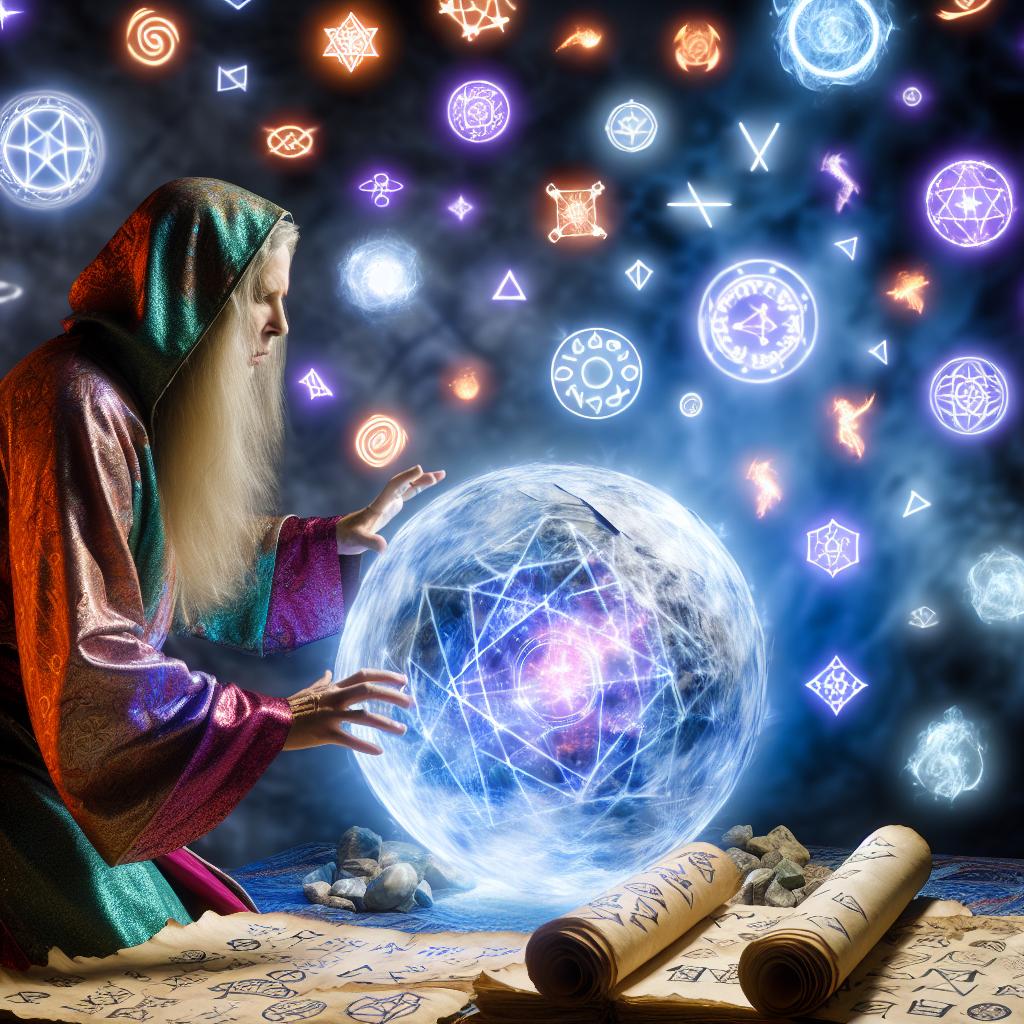How to Design a Unique Magic System

Introduction to Magic System Design
Designing a unique magic system can be a complex yet rewarding process for creators, whether it’s for a novel, game, or any fictional universe. A well-crafted magic system not only enhances the narrative but also immerses readers or players in the world you’re crafting. This article provides a structured approach to developing a magic system that feels fresh and engaging.
Defining Magic’s Role in Your World
Before delving into the specifics of magic, consider its role and significance within your world. Is magic commonplace, or is it a rare and mystical force? Understanding the prevalence of magic in your story world allows for more consistent world-building. Consider how its presence or absence shapes the culture and infrastructure of civilizations. How does it affect daily life, politics, and society at large? This is crucial because magic often impacts trade, communication, and even warfare.
Consider the Source of Magic
Understanding where magic originates is crucial. The source can significantly impact how it is perceived and utilized. Is it drawn from nature, divine entities, or the innate abilities of individuals? Each source carries its own implications. For instance, magic derived from nature might require users to be in tune with the environment, whereas magic bestowed by divine beings might require adherence to certain religious practices. The origin story of magic can also generate plotlines, such as quests to discover ancient scrolls or relics linked to its source.
Establishing Rules and Limitations
Magic systems are most compelling when they operate under clear rules and limitations. These constraints not only help maintain suspense but also make the magic more relatable and intriguing. When formulating these rules, think about boundaries. Can magic resurrect the dead, or is that considered taboo? Are there ethical guidelines governing its use?
Creating a Balance
A balanced magic system prevents characters from becoming too powerful, which can lead to a loss of tension in the story. Balance is achieved by imposing costs or consequences on using magic. Introduce trade-offs that make the use of magic strategic rather than overpowered. For example, using a spell could drain a character’s energy, requiring them to rest or consume resources to replenish. The need to weigh the benefits against the costs can lead to interesting decision-making scenarios for characters, adding depth to your plot.
Determine How Magic Is Learned and Practiced
Consider whether magic is an art or a science in your world. Is it acquired through rigorous study, innate talent, or a combination of both? If magic is an academic pursuit, create an education system with nuances such as rank or specialization—much like academic disciplines in our world. A character’s progression through this system can serve as a narrative arc. Alternatively, if magic is innate, explore themes of self-discovery and personal growth as characters learn to harness their abilities.
Diversity of Magical Abilities
Introduce variety by allowing different types or schools of magic. This diversity can add depth to your world and offer opportunities for specialization among characters. Imagine the intricate dynamics this creates—alliances, rivalries, and even conflict. For example, some individuals might excel in elemental magic, while others master illusions or healing. The intersection of these abilities can lead to cooperative problem-solving or competition, enriching character interactions.
Integration with Technology and Society
Explore the relationship between magic and technology. Is magic integrated into technological advancements, or is it a separate, rival force? The answers to these questions help establish the level of innovation and progress within your fictional world. Think about societal norms—whether magic users are revered, feared, or marginalized—and how that affects character interactions and plot development. For instance, a society heavily reliant on magic might dismiss technological innovations, leading to tensions and dichotomies that could fuel your narrative.
Conflict Arising from Magic
Magic can be a source of conflict, both personal and societal. Perhaps not everyone believes in magic, or there’s a divide between those with and without magical abilities. Such conflicts provide fertile ground for storytelling and character development. Who champions the cause of non-magic users? How do societies resolve disputes around magical misuse? These questions can shape major plot points and character motivations.
Crafting a Unique Aesthetic
The style and presentation of magic can greatly affect its appeal. Think about how magic is perceived visually, audibly, or even tactilely in your world. Consider how this sensory experience transforms everyday life. Vibrant magic might be a spectacle during cultural festivals, while subtle magic may enable espionage. The aesthetic also offers an opportunity to delve into world-building details, like art styles, clothing, and architecture that complement the magic type.
Developing Terminology and Culture Around Magic
Create specific terminology related to your magic system, which can include unique names for spells, tools, or positions within magical hierarchies. Moreover, such terminologies enrich dialogues and interactions, providing authenticity and immersion. Additionally, consider developing cultural practices, rituals, or myths related to magic that add authenticity and richness to your setting. For instance, an annual magic tournament could be a central cultural event that showcases different magical schools.
Conclusion
Designing a unique magic system requires thoughtful consideration of its role, rules, and integration within your world. By balancing limitations with creativity, you can craft a magic system that not only serves your narrative but also captivates your audience. Aim for depth and consistency, ensuring that every magical aspect enriches the world you are creating. For further exploration into world-building, consider resources such as books and online courses offering in-depth guidance on creating fictional universes (here is a recommended starting point).
Comments are closed.
Comments on 'How to Design a Unique Magic System' (0)
Comments Feed